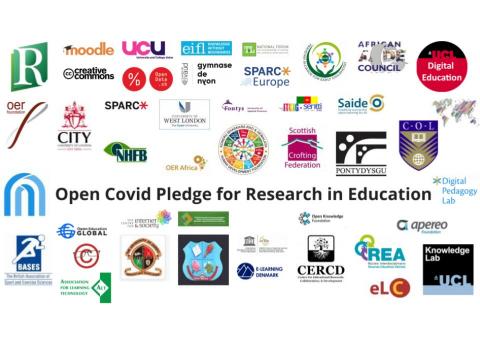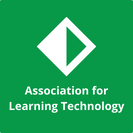
Since we launched the Open Covid Pledge for Education, more than 100 open educators and more than 40 organisations have pledged to share their knowledge to support the educational response to COVID-19.
It’s a wonderful expression of solidarity in the face of enormous challenges. But what does an open pledge really mean, and what could it achieve?
Every day brings new and hugely consequential decisions about how to support student learning, and how to care for people involved in education during the pandemic. Some of the know-how needed to respond well is already available. Online teaching is not a new practice. Earlier crises have forced schools and universities to close, and educators have responded-- ask university teachers in South Africa who dealt with campus strikes, school leaders in Hong Kong who battled the previous SARS outbreak, or educators delivering mobile learning in conflict situations, where schools and colleges are no longer safe.
We need to surface and share this knowledge as a matter of urgency. But a lot of critical information is emerging only as the situation unfolds. Open knowledge allows that learning to be quickly shared and put to use. It’s transparent, allowing users to review and critique information before acting on it. It’s fair, making resources common property rather than sources of competitive advantage. And it helps to build alliances, in local areas as providers work together to keep communities safe, or across great distances as educators wake up to the same problems around the world.
Researchers and reflective practitioners don’t always know how our findings could be useful in another setting. I was recently asked by a UK university for evidence about hybrid teaching (students both physically present and live at a distance). I was able to suggest some resources from Australia, where this practice has a longer history.
To have a real impact, we (the pledge signatories) need to identify the kinds of knowledge and data that are most urgently needed. The rest of this blog post looks at where those examples might be found. But to take real action we still have to engage more people and build a broader coalition, so we can share the open knowledge we have with the people who need it most. So please:
- sign the Open Covid Pledge for Education, and consider persuading your colleagues and leaders to do the same
- blog about why you think this is a good idea and what the pledge could mean in your work
- share your post and link to existing content using the hashtag #OpenCovid4Ed
- join an open webinar with ALT’s Open Education SIG (Friday 18 September, 12.30pm BST)
What kinds of open knowledge can be shared?
These examples have a UK bias, but equivalents can be found across the world.
Open access findings
Many journals have already produced pandemic special issues, and many journals in education are already open access, allowing everyone to benefit. But others can become so, temporarily or for good, by putting COVID-related content beyond their paywall. The established Open Education Research hub at the Open University makes research openly available as a matter of course, and other research departments and institutes are beginning to recognise the benefits of doing this systematically, i.e. building in an assumption of open publication from the start of a project. We already have an open systematic literature review of publications relevant to COVID in education: now we need all the papers included in this review to be made open access too.
Open Data
De-identified or aggregated data can be shared openly for other researchers to use, as HEPI have done with their 2019/10 survey of the student academic experience, including a pre- and post-lockdown split. The Open Data Institute publishes useful guidance and UNESCO has produced five tests or pledges on sharing data relevant to the COVID crisis while protecting participant privacy and data ethics.
New and unpublished research
Researchers and research students in education are redesigning their projects to focus on the pandemic response. The UKRI has a scheme for existing grant holders to switch their focus to the pandemic response, and the ESRC is looking for new projects to “address fundamental gaps in our knowledge and provide practical evidence that could be of use in responding to or mitigating the pandemic and its impacts”. In a rapidly evolving situation, researchers need to keep checking that their work fits into a wider research landscape, how it might be useful, and who else is pursuing the same issues. All this can be achieved by early and open sharing of work in progress.
The staff/student experience
Some colleges are conducting routine ‘pulse surveys’ to check on student learning and wellbeing. Some are investigating the experience of online teaching, or the impact of new modes of learning on campuses and communities. These findings are contextual of course, but other organisations can still learn from the results. UCL and Edinburgh University have recently published their own studies into the experiences of their teaching staff, while the European Students Union is collating student experiences via a series of podcasts.
OERs for educators
Much of what educators need in this situation is practical, and deeply embedded into practice. From OpenLearn’s free ‘take your teaching online’ course to UNESCO’s list of platform solutions and everything in between, the pandemic has seen a flowering of open resources about open education. Thanks to the Capetown Open Education Declaration, UNESCO’s OER Recommendation and other international initiatives, there is no shortage of material. But the Pledge could provide a focal point for curation and editing, and a new momentum for outreach, to ensure that the open education movement is working together and that new open educators can quickly find what they need.
Evidence from practitioners and practitioner groups
Sharing practice might not look like formal evidence or shareable OERs. In the UK we have strong professional bodies such as ALT with established forums for sharing know-how. We have HE regional networks, the Higher Education Institutional Research network, the Society for Research into Higher Education, the University and College Union, the National Union of Students and many more. All are engaged in sharing evidence about education policy and practice. We also have a wealth of open education bodies, many of which have signed the pledge. Let’s use the pledge to help information and know-how move more freely across the boundaries of these different organisations and networks, in the interests of the pandemic response and to support a more sustainable and just education system beyond it.
